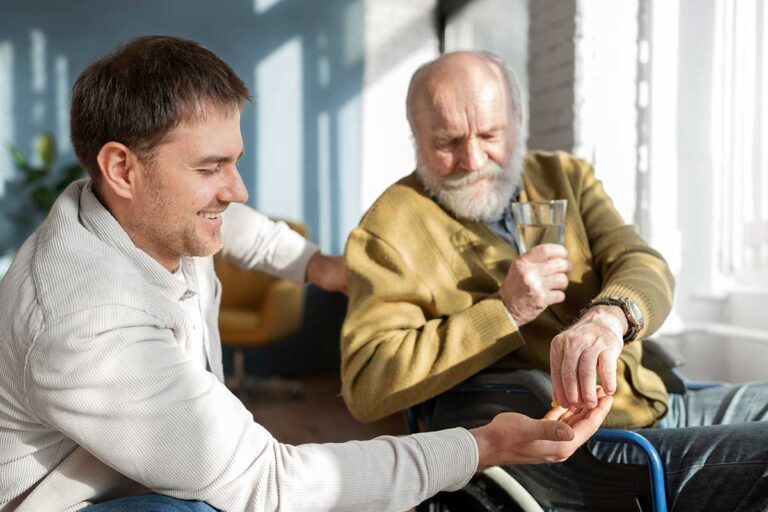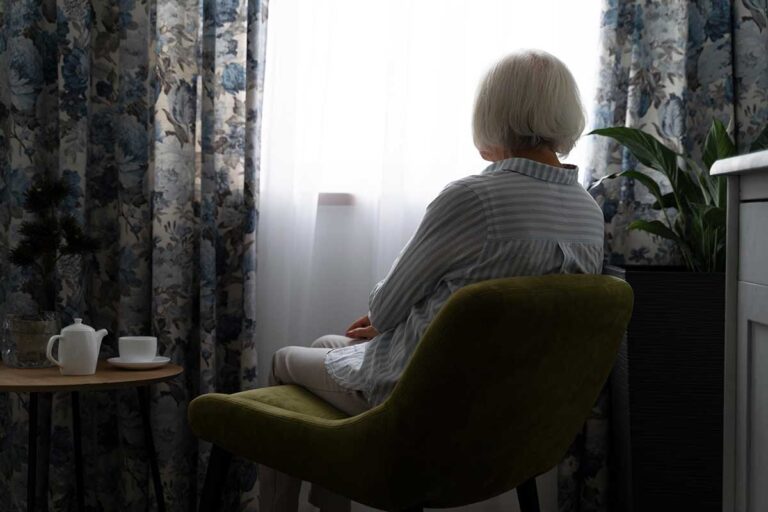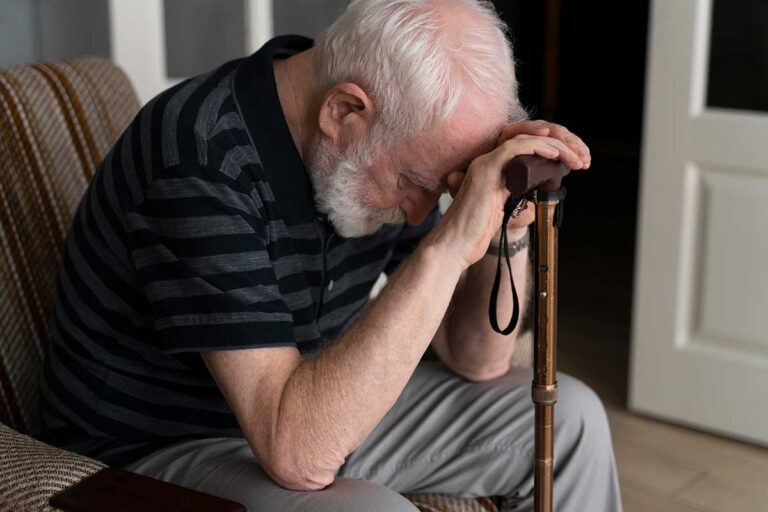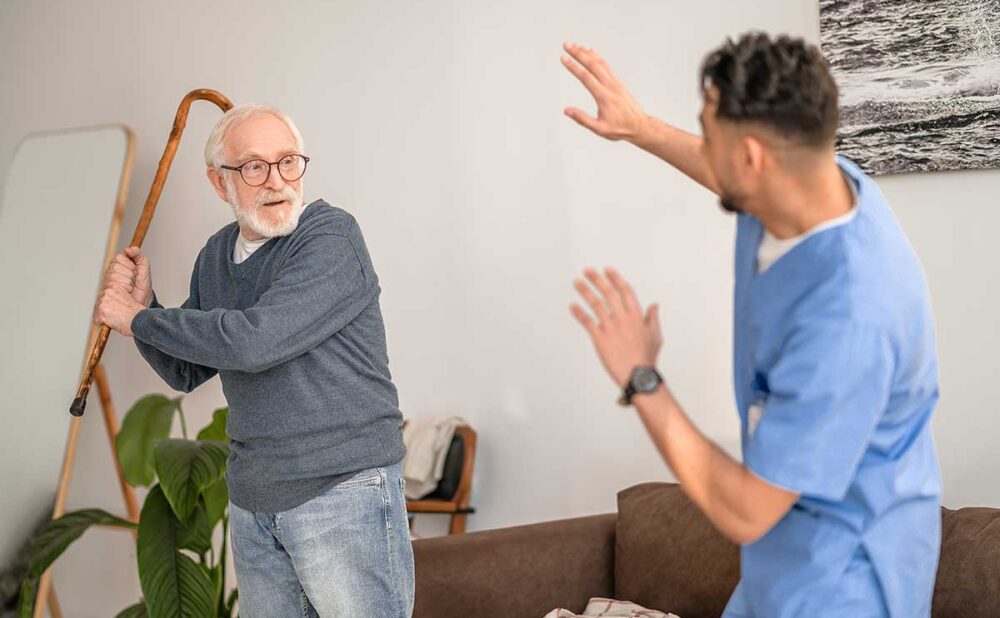Uncovering Nursing Home Abuse in Georgia
Identifying Signs, Understanding Types, and Exploring Solutions
Nursing homes serve as vital sanctuaries for elderly individuals who require assistance with daily living activities and medical care. While these facilities aim to provide a safe and nurturing environment, a troubling reality exists: nursing home abuse. This phenomenon encompasses various forms of mistreatment that can severely impact the physical, emotional, and financial well-being of vulnerable residents.
In Georgia, as in many other states, the population of elderly individuals is on the rise, leading to an increased demand for long-term care services. Unfortunately, this surge has also highlighted the potential for abuse and neglect within these facilities. Understanding the complexities surrounding nursing home abuse is crucial for families, caregivers, and advocates who seek to protect their loved ones.
If you suspect that a loved one has been the victim of nursing home abuse, it is essential to act promptly. Reporting any signs of abuse to the appropriate authorities is vital, and in cases of immediate danger, contacting emergency services (911) is crucial. Additionally, pursuing legal action through a nursing home abuse attorney can help facilitate recovery for medical expenses and other related costs. Secure a complimentary case evaluation today at (770) 771-5130 to explore how The Jewkes Law Firm might assist your family.
What is Nursing Home Abuse?
Nursing home abuse refers to any harm or neglect inflicted by caregivers on residents within these facilities. This abuse can manifest as both intentional and unintentional actions, leading to significant emotional and physical trauma, medical emergencies, and in severe cases, even death.
Nursing homes often attribute the prevalence of abuse to factors such as inadequate staffing, insufficient training, and caregiver burnout. These issues may lead to staff members exhibiting frustration or stress in harmful ways toward residents, and can also hinder their ability to respond effectively to urgent health crises.
Victim of Nursing Home Abuse? Contact Us For A Free Consultation
Victim of Nursing Home Abuse?

Nursing Home Abuse Statistics
Understanding the statistics surrounding nursing home abuse can be unsettling, yet it underscores the importance of awareness for families with loved ones in care facilities. Notable statistics for residents living in nursing homes, assisted living facilities, or other long-term care environments include:
- Elder Abuse Admission. Two out of three staff members in long-term care facilities have admitted to committing elder abuse in the past year (World Health Organization — WHO).
- Prevalence Among Residents. 1 in 10 nursing home residents report experiencing abuse (National Center on Elder Abuse).
- Reported Abuse Rates. Nearly 44% of residents in nursing homes or care communities have reported instances of abuse (Cureus).
- Impact on Dementia Patients. Almost 50% of residents with dementia encounter abuse or neglect (National Council on Aging).
The WHO anticipates an increase in elder abuse cases due to the global aging population. Thus, families must stay informed and proactive in safeguarding their loved ones.
Types of Nursing Homes Abuse
Nursing home abuse can take many forms, each with its own distinct characteristics and implications. The phrase “nursing home abuse” commonly evokes images of physical injuries; however, it encompasses a broader range of issues, including neglect, sexual assault, emotional distress, and more. Understanding these types is crucial for identifying potential abuse and taking appropriate action. Below, we delve into the primary categories of nursing home abuse: physical, emotional, and financial.
Physical Abuse
Physical abuse in nursing homes refers to the intentional use of force against a resident that results in harm or injury. This can manifest in various ways, from hitting and slapping to more severe forms of harm like restraining a resident without justification. Physical abuse can leave visible marks, such as bruises, cuts, or fractures, but it may also occur without obvious external signs. Examples of physical abuse include:
- Hitting or kicking. Any form of striking can lead to both physical and emotional trauma.
- Improper use of restraints. You cannot restrain a resident without medical justification or proper consent.
- Force-feeding or improper handling. This can result in physical distress or injury, especially in residents with limited mobility or cognitive impairments.
Emotional Abuse
Emotional abuse, often referred to as psychological abuse, involves inflicting mental pain, anguish, or distress on a resident. This type of abuse can be more challenging to identify than physical abuse, as it often leaves no visible scars. Emotional abuse can take many forms, including verbal assaults, humiliation, intimidation, or isolation. Emotional abuse within nursing homes can induce anxiety and fear among residents, potentially leading to serious mental health complications. Signs of emotional abuse may include:
- Withdrawal from social interactions. A resident who previously engaged with peers may suddenly become isolated or withdrawn.
- Extreme changes in behavior. Sudden outbursts of anger or tears can indicate emotional distress.
- Fear or anxiety. If a resident appears fearful of staff or caregivers, it may suggest an abusive environment.
Financial Abuse
Financial abuse involves the illegal or improper use of a resident’s funds, assets, or property. Caregivers, family members, and others with access to the resident’s financial resources can perpetrate this type of abuse. Common tactics include coercion, manipulation, and outright theft. Examples of financial abuse include:
- Unauthorized use of credit cards or bank accounts. Taking funds without the resident’s consent is a clear violation of trust.
- Pressure to change legal documents. Abusers may manipulate residents into changing wills or power of attorney documents in their favor.
- Scams and fraud. Unscrupulous individuals may target residents with scams that exploit their vulnerability.
Understanding these types of nursing home abuse is essential for recognizing the signs and symptoms that may indicate a resident is suffering. By being informed about the different forms of abuse, family members and caregivers can better advocate for the safety and well-being of nursing home residents.


GEORGIA PERSONAL INJURY LAWYER NEAR ME
Warning Signs of Nursing Home Abuse
Identifying the signs of abuse within nursing homes is crucial for safeguarding residents from potential harm. Abuse and neglect can manifest in various ways, including physical injuries, emotional distress, and unexplained changes in a resident’s health status.
Families must remain vigilant for these warning signs and take appropriate action if they suspect any form of abuse in a nursing facility.
Physical Injuries
Unexplained injuries are a primary red flag. Such injuries may stem from rough handling, insufficient supervision, or deliberate harm.Common physical signs include:
- Bedsores (pressure ulcers). Particularly severe, stage 4 bedsores, indicating neglect.
- Bruises and Cuts. Unexplained marks may suggest rough handling or abuse.
- Fractures and Broken Bones. Often a result of falls or inadequate care.
- Infections. Unattended infections can escalate to severe health crises including sepsis.
- Dental or Facial Injuries. Broken teeth or jaw issues may suggest neglect or abuse.
- STDs. Unexplained sexually transmitted diseases may signal instances of sexual abuse.
Any occurrence of these injuries should prompt immediate investigation to ascertain their origin and ensure the resident’s safety.
Emotional and Behavioral Changes
Not all forms of abuse leave visible evidence. Changes in behavior can indicate psychological abuse or neglect:
- Fear of Caregivers. Signs of distress or avoidance of certain staff members.
- Withdrawal or Depression. A resident who suddenly becomes withdrawn may be experiencing emotional abuse.
- Agitation. Increased frustration or aggression can signal underlying distress.
- Confusion. Medication mismanagement or psychological maltreatment could cause symptoms exceeding what is typical for their medical condition.
These behavioral modifications should not be overlooked; they could indicate ongoing mistreatment.
Additional Indicators
Abuse and neglect within nursing homes may not always be visible through physical or emotional signs. Changes affecting an individual’s overall health and wellness can also serve as warning signals for elder abuse within these facilities.
Other signs of potential abuse or neglect can include:
- Dehydration. Symptoms may include dry skin or weakness.
- Poor Hygiene. Unsanitary living conditions or appearance may indicate neglect.
- Weight Loss. Unexplained weight fluctuations can suggest malnutrition.
- Wandering or Elopement. Residents leaving the facility unsupervised is a critical warning sign.
- Falls. This often indicates inadequate supervision or improper assistance with mobility.
- Wrongful Death. In extreme circumstances, abuses encountered in nursing homes can lead to fatal outcomes.
Any sudden declines in health status or quality of care should raise immediate questions regarding possible neglect.
If you have observed signs indicative of nursing home abuse, please reach out to The Jewkes Firm at (770) 771-5130 for assistance.
Need a Free Consultation? Need a Skilled Attorney?
Free Consultation
Call (770) 771-5130
If you’ve been injured, you need to hire the best legal care to assist you with your claim. Get a FREE consultation today!
Contributing Factors to Nursing Home Abuse
Numerous factors may contribute to nursing home abuse, often linked to systemic issues within the facility:
Staff Burnout
Long hours and emotionally taxing work can lead to caregiver burnout, resulting in frustration directed toward residents.
Corporate Decisions
Profit-driven motives often lead to hiring unqualified staff and insufficient training, increasing the likelihood of abuse.
Greed
Some staff members might exploit residents for personal gain. They could form close relationships only to later misappropriate funds by forging checks or using credit cards without consent. This breach not only deprives residents of their savings but also undermines the trust they should have in a facility designed for their protection and care.
Lack of Supervision
When staff are not adequately monitored, residents may experience severe neglect for extended periods. This absence of oversight can lead to situations where fundamental needs go unmet—ranging from medication errors to poor hygiene—which heightens the risk of health issues.
Negligent Staff
The behavior—or lack thereof—of nursing home personnel can also lead to instances of abuse or neglect. While understaffing remains a persistent issue within these facilities, it should never excuse harm directed at residents. Indicators that may suggest nursing home abuse include:
- Unresponsiveness to requests for help from residents
- Dismissing concerns regarding conflicts among residents
- Mishandling resident transfers between different areas
- Demonstrating disrespect or negative attitudes towards those in their care
It is crucial to document any concerning behaviors exhibited by staff alongside any injuries your loved one may have sustained. Maintaining detailed records on these aspects will facilitate reporting incidents of nursing home abuse more effectively.
Understaffing
Understaffing within nursing homes places immense pressure on existing employees as there are fewer caregivers available for resident support. According to the Centers for Medicare and Medicaid Services (CMS), a diminished nurse-to-resident ratio can adversely impact overall health care quality provided by a facility, leading to heightened incidences of both abuse and neglect among vulnerable individuals.
Risk Factors for Abuse in Nursing Homes
Although any resident in a nursing home may be vulnerable to abuse or neglect, certain characteristics can elevate the likelihood of experiencing such mistreatment. Key risk factors for elder abuse include:
- Gender. Research published in Justice Quarterly indicates that women represent 67% of cases involving sexual abuse among the elderly.
- Veteran Status. Veterans often require extensive medical attention and may deal with conditions such as post-traumatic stress disorder (PTSD), which can increase their susceptibility to abuse.
- Mental Health Issues. According to the National Council on Aging (NCOA), nearly 50% of older individuals with mental impairments are victims of abuse.
- LGBTQ+ Identity. The National Center on Elder Abuse (NCEA) reports that 8% of LGBTQ+ elderly individuals have faced physical abuse at the hands of caregivers.
If an older adult exhibits any heightened risk factors for abuse within nursing homes, it is crucial to monitor them closely and observe for any significant changes in their behavior or physical condition.

Nursing Home Abuse Laws
In the state of Georgia, a range of laws and regulations is in place to safeguard nursing home residents from instances of abuse and neglect. The Georgia Department of Community Health (DCH) is responsible for overseeing the licensing and regulation of nursing facilities, ensuring that they adhere to both state and federal standards. Furthermore, the Omnibus Budget Reconciliation Act (OBRA) enacted in 1987 establishes federal guidelines that nursing homes are required to follow to protect residents’ rights and maintain high-quality care. Residents are entitled to live free from abuse, receive necessary medical treatment, and engage in decisions regarding their healthcare. It is essential for residents and their families to be well-acquainted with these rights, as this knowledge enables them to advocate effectively for themselves and seek help when needed.
Reporting Nursing Home Abuse: Steps to Take
If you or a loved one has experienced abuse or neglect in a nursing home, it is essential to raise your voice. Reporting your concerns to the appropriate authorities can initiate the healing process and promote justice.
In Georgia, concerns about potential abuse can be reported to the Georgia Department of Human Services’ Adult Protective Services (APS) at (866) 552-4464. Keeping detailed records of specific incidents—including dates, times, and descriptions of observed behaviors—is vital, as this information can play a significant role during an investigation. Moreover, families and caregivers should also consider reaching out to local law enforcement if they suspect that a crime has been committed. Being informed about the reporting process and having a well-defined plan can significantly enhance the likelihood that reports of suspected abuse will be addressed swiftly and effectively.
Moreover, when nursing home facilities are held responsible for their actions, they are more inclined to implement necessary changes, thereby enhancing the safety of future residents.

How to Safeguard Against Abuse in Nursing Homes
Abuse of residents in nursing homes is a grave concern. It is crucial for families to be vigilant for warning signs and act promptly if they suspect any form of mistreatment.
A significant number of nursing home abuse cases go unnoticed and unreported. Fortunately, families can take proactive steps to prevent abuse by:
- Staying informed about potential signs of mistreatment.
- Regularly visiting loved ones to monitor their well-being.
- If abuse is suspected, consider facility changes.
By collaborating with a reputable law firm specializing in nursing home abuse, you may have the opportunity to hold culpable staff members financially responsible for their actions.
An attorney specializing in nursing home cases can assist you and your loved ones in pursuing justice and holding negligent staff accountable. Numerous families have opted for legal proceedings to obtain compensation for the suffering endured by their relatives.
The financial awards from nursing home abuse lawsuits can aid in covering:
- Funeral Expenses. Funding burial and memorial services.
- Medical Bills. Addressing costs associated with hospital stays due to injuries or neglect.
- Additional Costs. Any other financial burdens resulting from the abuse.
Law firms focused on nursing home abuse may also pursue punitive damages. Punitive damages penalize negligent facilities but also discourage future misconduct.
Obtain Legal Assistance for Nursing Home Abuse
Elder abuse within nursing facilities can result in severe injuries and significant emotional distress. Promptly reporting any concerns is essential to prevent additional harm.
While initiating a lawsuit may appear daunting, experienced nursing home abuse lawyers can help you navigate the legal process. Thus, ensuring it is straightforward and stress-free. Nursing home abuse attorneys can:
- Collect Evidence. This includes obtaining medical records, bills, witness testimonies, and reports from the facility.
- File Your Case Timely. They will ensure that all legal deadlines are met for maintaining eligibility.
- Pursue Maximum Compensation. Their goal is to secure the highest potential compensation for affected families.
If you believe that a loved one has been subjected to nursing home abuse, reach out for a free case review at (770) 771-5130. Legal professionals are ready to help you navigate the complexities of the situation and work toward justice and compensation for the affected individuals.





